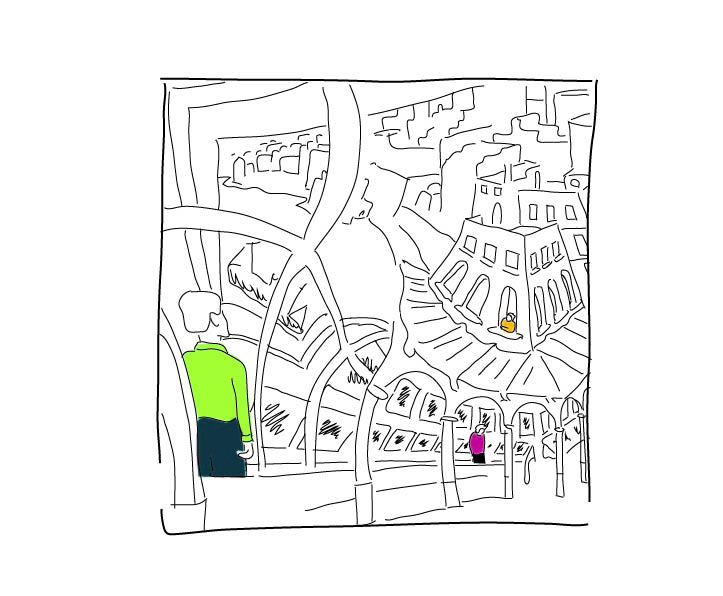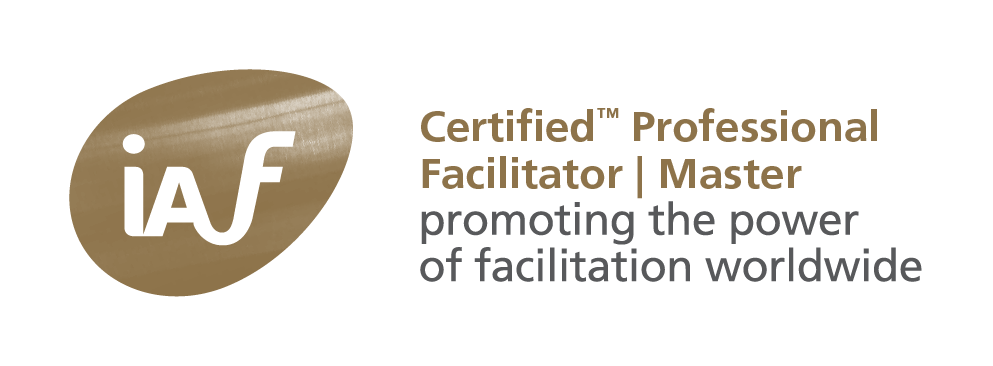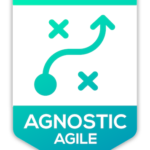I got a message from one of my dear friends, who didn’t grasp the previous post completely. Understandable. Here I share my reply to her (stop reading when you feel confused), which I extend some what here.
You’re not the only one being confused. My wife is too. As I am. Confusion is the way reality informs us.
Structure makes a map useful.

We cannot destruct “information“, because it doesn’t exist in reality or – paradoxically – because you/we construct it (y)ourself. A map (of London Underground (in Welsh!)) doesn’t contain information, until you use the map to navigate the City. So use of the map/metaphor BY YOU induces “information”. You inform yourself through “mapping”.
Of course you can say “this map informed me”, grammatically correct. That’s only half of the process – which I like to call “realizing“. The other half you cannot “see”: “coding” a map, learning to read a map.
When we travelled through China, I noticed that many of the Chinese maps used different names for places and often didn’t have North on top. Luckily I had brought a compass. I was told that in the old days, Chinese people didn’t learn to read a map properly, to prevent them from migrating. This was also why they didn’t bother about the relative directions.
Use makes you construct information; information is being “constructed” by you. While reading a map, you use it and while acting, travelling, through using, you “destruct” it. As Ashby noticed: the better your use, the more information you “destruct”. The actual information exists only when you detect and correct an error.
Confusing information
Paradoxically, information only exists when you’re confused and are travelling in the wrong direction. Errors inform. Probably why the British drive on their right side (left) of the road. To make this point.
In my thesis for my MBA I called real information “Cassandra information”, a prophetess of Troy. She had Apollo’s gift to see the future, and Zeus’s curse never to be believed. Cassandra means “she who confuses men”. Homer knew to make his metaphors work for him.
I use the word “realizing” for the decoding of a map (or metaphor) on the natural domain. You’re realizing reality in reality. Information is not on the map (pun intended), but in your body/brain/mind. The correct word to use would be “informing”.
The idea that “information” doesn’t exist in concrete reality seems weird. Because everyone uses this as if it actually exists. We’ve got information system, politicians rely on information, we can get information. Not. Only data are given (again a joke). Information just creates more confusion.
Don’t believe everything I say
The use of a word implying the illusion of its (real) existence is called the Thomas principle. Consequences of illusions can be very real (look into the myth of money). Because consequences are real – people act as if they’re using information – we assume the thing is real. And as long as it works, nobody bothers.
Things or stuff exist in (what I like to call) natural domains, a kind or natural stuff. We can call them concrete objects (and when I say concrete I mean the stuff concrete). By using objects, we create a metaphor-in-use in our body/brain/mind.
Through (y)our perceptual systems you recognize the use of objects and not the object-as-it-is. When you’re looking for a chair, you’re perceiving “sitting” when you need a rest, “placing” when you need to put something down and “climbing” when you need to reach the books at the top shelf.
(Your) Use informs. That’s why we call it in-form-ation. Because a shape (form) informs. Information is in a useful format (sic). Constructing a use (or “need”) precedes formation of information.
So use of an objects – by you – induces a metaphor-in-use. (As I told you, this why AI consistently fails, as it doesn’t code for the use of an object).
I think, therefore I see
However, you cannot perceive your perceptions. You’ve got no access to the processes of perceiving (through senses and intuition) and judging (feeling and thinking) – except, perhaps, when they’re failing you. Oops. As long as your eyes and brains work properly, there’s no need for.
With words we can refer to objects. We can grasp these. And we have learned – this makes life interesting – to use subjective concepts so we can understand better. (In Dutch the word for understanding is “begrijpen” or “to grasp”, so there I can say begrijpen begrijpen or grasp grasping, or understand understanding).
Using language-as-a-means (of-communication) induces our use of nouns as an explanatory concept. Like “information”, “memory”, “instinct”, … or “mind” – if you don’t mind. These “things-like-concepts” exist only in a cultural domain with a language-as-a-goal (of-understanding).
A cultural domain (a word I like to use for group) – where objects get meaning by using them – induces a language domain -where concepts get meaning through proper use of the words. If you see what I mean.
I dunno…
You cannot know how you know. (What?!). When perceiving you cannot perceive (your) perceptions. In the same way, you’ve got no means to mean your meaning. Not very proper use of words, I know. And to make things worse: you cannot be informed on the ways you inform yourself.
You cannot see what you cannot see. The nice thing about language, is that it enables us to talk about things we cannot see. This works out fine in physics and story telling. We can construct constructions and put a human being in space; and we can construct stories to put a child in bed.
But accidentality, we may get confused, when we confuse our mental constructions with real things. When you assume things-as-real, because others treat them as real, you start looking for these things. Dragons under the bed.
The nicest example being “mind”. “Mind” is not a thing, nor a no-thing. Just like information. It’s nothing, until you call it. And then it is what it is.
The word fact and fiction have both been derived from the Latin “facere“, to make. Fiction can be factual and facts can be made up. Confusing. On the other hand, that’s where the information resides.
Consequences for facilitating groups
In order to see, learn to act. “Actions speak louder than words”. So move, make gestures.
Ask participants to regularly reflect using these three questions (no need to share) :
- What do I notice NOW about myself?
- What do I notice now about others?
- What do I notice about this situation?
The hardest part of facilitating a group is “to stay in the confusion”. For instance, when you start to drill down on a concept (“… and information is like …”, “… and <this> is like..”, “.. and what happens before/during/after <this> ..”. …) at a point, they “don’t know”. People start to become confused (or worse, angry, sad, frightened, …) and start to sense. Endure this. Wait. Information will come. Then write it down literally. Move on.
Happy opportunities. Learning happens ONLY when things go wrong. I’m sorry to say (no I’m not). When you or others make an error, a mistake, then a learning opportunity happens. So – for instance at the beginning – prime them for “happy accidents”. When everything went well, nothing has been learned.
Give way to emotions and feelings – both negative and positive. Recognize them as a necessary steps in developing information.
Check. When something “bad” has happened and it has been talked about, check the individuals during a break or afterwards.
Don’t rush steps. Better skip a whole step, when running out of time. Never skip a check-out.
What one thing do you want to take away from this post?




